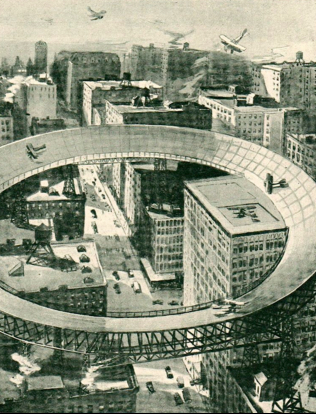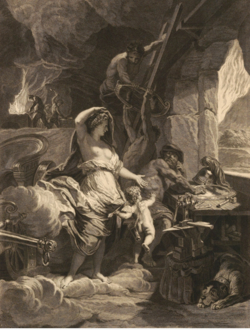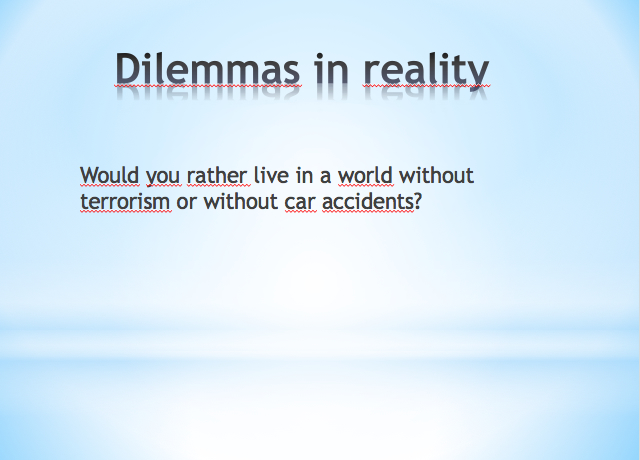

First of all, I would like to use this opportunity to express my gratefulness to the following students in my class: Henk Middelkoop; Jun Watanabe; Olivier Rutgers; Tim Boot; Talitha Kalidien and Igor Konovalov. The questions you asked during your presentation, concerning the impact of values and emotions in the process of innovation, were to me of criticalvalue. As a student of a social faculty, some answers are helpful trying to collaborate in the world of Technology, Policy and Managment.
Houston, we got a problem! The first useful information resulted out of this question you asked at the start of the second presentation: Would you rather prefer the world without any problems or ruled by yourself? "Wow, A massive smash in my face by 'This blast from the past for dictatorship' made me dazed and confused. I tried to understand what just happened. "Do American R.I students learned nothing from their history lessons?" I attempted to grab a table when looking at the two American students explaining their cruel choice to the rest of the class. I looked around to find other victims hit by this ridiculous idea. Already a next question asks my attention. This one would induce so much disgust by my fellow students that it shaped my theory that was about to get born. 'Can you give an example, where your decision is established based on your emotions instead of using rational thinking.' A common manifestation of class hysteria occurred when the R.I's experienced similar like kinds of 'Moral overload'1. The spontaneous burst of hysterical reactions such as; "I never respond with emotions!" "What are these guys thinking?" "I do not show emotions in public." ‘This is not something to share.’ Readings for this week provided me with a theoretical framework build from value sensitive design and The Not In My Backyard phenomenon2. Today's experiences with the R.I students and their attitudes towards emotions made me scared for future collaborations in the course.
The legendary words of the teacher and until that time

This column is the first to publish about the 2015 R.I. Renaissance and Revolution. This uniquely discovered phenomenon reported as; Not So Ridiculous. As well as other minor observations are fully published online in a one-woman blog named: Not So Ridiculous http://notsoridiculousinnovations.com/about/
I will end this column with an open invitation for the entire class to contribute to this blog with your observations and views.
1) Hoven, J. V. D., Lokhorst, G.J., Poel, I.V.d., (2011) Science and Engineering Ethics; Engineering and the Problem of Moral Overload. Volume 18, Issue 1 , pp 143-155
2)Correljé, A., Cuppen, E., Dignum, M., Pesch, U., & Taebi, B.(Draft version forthcoming book) Values in the Design of Technologies,Institutions and Stakeholder Interactions;Responsible Innovation in Energy Projects;





